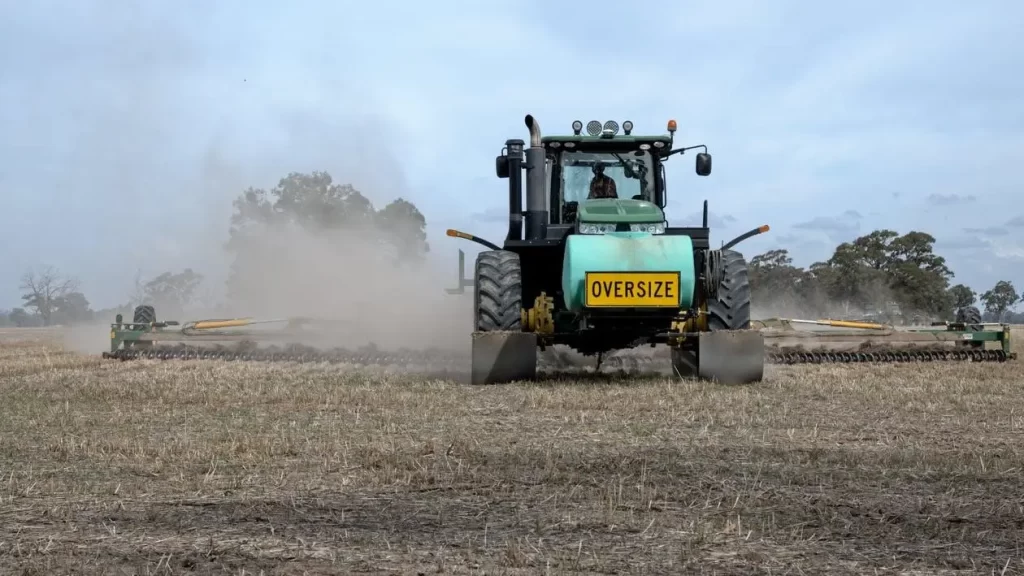The key market trends influencing Alabama farm appraisals include a shift in
consumer demand towards organic and locally sourced products, driving higher values for certified organic or sustainable farms offering farm-to-table experiences.
Technological advancements like drones and GIS have revolutionized property assessments, while
farm management software and precision agriculture tools boost efficiency. Additionally, an increasing focus on
environmental sustainability necessitates sustainable practices for regulatory compliance, cost savings, and improved perceived resilience. These trends impact profitability,
market demand, and regulatory compliance in farm appraisals to a considerable extent. If you explore further, you can discover how these trends shape the Alabama farming industry.
Key Takeaways
- Increasing interest in organic and locally sourced products
- Technological innovations like drones and GIS enhancing property assessments
- Growing preference for farm-to-table experiences
- Demand for sustainable farming practices impacting farm values
- Agritourism activities adding value to farm appraisals
Consumer Demand Shifts
Consumer preferences are evolving rapidly, influencing the market trends seen in Alabama farm appraisals. One noticeable shift in consumer demand is the increasing interest in
organic and locally sourced products. Consumers are becoming more health-conscious and environmentally aware, leading to a higher demand for farms that use sustainable and organic farming practices. This shift is reflected in the market values of farms that are certified organic or practice sustainable agriculture methods, as they are often appraised at higher values compared to conventional farms.
Moreover, there is a growing preference for
farm-to-table experiences among consumers. They are seeking out farms that offer
agritourism activities such as farm stays, u-pick operations, and farm-to-table dining experiences. Farms that can provide these unique experiences are being appraised higher due to their
additional revenue streams and potential for diversification.
Technological Innovations
As the
agricultural landscape in Alabama continues to evolve,
technological innovations are playing an increasingly pivotal role in shaping farm appraisals. The integration of advanced technologies is revolutionizing the way farm appraisals are conducted, providing more accurate and efficient assessments of agricultural properties. One of the key technological trends impacting Alabama farm appraisals is the use of
drones for aerial surveys. Drones equipped with high-resolution cameras can capture detailed images of farmland, allowing appraisers to assess property boundaries, soil quality, and crop health from a bird’s eye view.
Moreover, Geographic Information System (GIS) technology is being utilized to analyze spatial data and create digital maps that offer valuable insights into the topography and characteristics of farms. This enables appraisers to make more informed decisions based on geospatial information. Additionally, the adoption of
farm management software helps streamline record-keeping processes, track inventory, and monitor financial performance, ultimately enhancing the efficiency and productivity of agricultural operations.
| Technological Innovations |
Impact on Farm Appraisals |
| Drones for aerial surveys |
Enhanced property assessments |
| Geographic Information System (GIS) |
Detailed spatial analysis |
| Farm management software |
Improved efficiency and productivity |
| Precision agriculture tools |
Enhanced decision-making processes |
Environmental Sustainability
What impact does environmental sustainability have on the valuation of farms in Alabama amidst evolving market trends?
- Increased Demand: Farms implementing sustainable practices are experiencing higher demand from consumers looking for environmentally friendly products.
- Regulatory Compliance: Adhering to environmental regulations is becoming essential for farm operations, influencing their overall value.
- Cost Savings: Sustainable practices like water conservation and energy efficiency not only benefit the environment but also lead to cost savings for farmers.
- Long-Term Viability: Farms that prioritize environmental sustainability are perceived as more resilient and likely to maintain their productivity in the long run.
Environmental sustainability is no longer just a moral obligation but a key factor in determining the value of farms in Alabama. Appraisers need to take into account the impact of sustainable practices on farm profitability, market demand, and regulatory compliance when evaluating the worth of agricultural properties. As the market continues to evolve, farms embracing sustainability are poised to attract premium valuations and secure their position in a changing agricultural landscape.
Frequently Asked Questions
How Do Changes in Government Policies and Regulations Affect the Value of Farms in Alabama?
Changes in government policies and regulations can greatly impact the value of farms in Alabama. Factors such as subsidies, environmental regulations, and trade agreements can influence land values, production costs, and overall profitability for farmers in the state.
What Role Do Global Market Trends Play in Influencing the Appraisal of Farms in Alabama?
Global market trends profoundly impact the appraisal of farms in Alabama. Factors such as demand for agricultural products, trade agreements, and currency exchange rates can influence farm values. Understanding these trends is essential for accurate appraisals.
How Do Fluctuations in Commodity Prices Impact the Appraisal of Agricultural Land in Alabama?
Fluctuations in commodity prices directly impact the appraisal of agricultural land in Alabama. Price shifts affect the profitability and overall value of farmland, influencing appraisals by reflecting the economic viability and potential returns from farming operations on the property.
What Are Some of the Unique Challenges Faced by Alabama Farmers in Terms of Land Valuation?
Alabama farmers face challenges such as urban encroachment, changing regulations, and uncertain weather patterns impacting land valuation. These factors can complicate appraisals, requiring a thorough understanding of the local market dynamics for accurate assessments.
How Do Social and Cultural Factors Influence the Perceived Value of Farms in Alabama?
Social and cultural factors play a significant role in shaping the perceived value of farms in Alabama. Local traditions, community values, and historical significance can all influence how a farm is viewed and appraised in the market.
Conclusion
To sum up,
consumer demand shifts,
technological innovations, and
environmental sustainability are the three key
market trends impacting Alabama farm appraisals. These trends underscore the significance of keeping abreast of changing consumer preferences, embracing new technologies to enhance efficiency, and prioritizing sustainable practices for long-term viability. By comprehending and adjusting to these trends, farm appraisers in Alabama can more effectively evaluate the value and potential of agricultural properties in today’s dynamic market.

